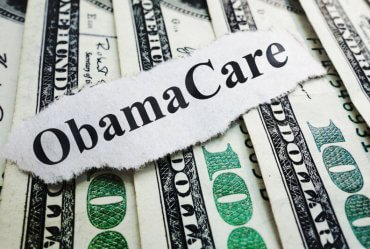The concept of self-driving cars seemed like a silly, farfetched idea thirty years ago, unless you were an avid science fiction fan. Funny thing about science fiction and the imagination of people such as George Orwell, author of the prophetic book 1984 – some of those so-called farfetched ideas expressed by visionaries who claim anything is possible, prove a plain and simple fact – the future is closer than we think. And, the auto insurance industry may have to prepare itself for the eventual increase of automated vehicles on our nation’s highways.
What the impact self-driving cars will have on auto insurance remains to be seen, but one thing is certain, as development continues to progress, they may become more common faster than anyone anticipates. The California Department of Insurance is advising the state’s car insurance companies to follow gathered data to adapt to the possibility of a future where drivers are a thing of the past.
The technology is already here. Automated vehicles have been in development for several years with a handful of companies testing their own version of a self-driving car. At the forefront of the venture is Google, with Tesla Motors, General Motors, and Nissan, among others, all expressing plans to test or introduce a driverless vehicle from 2016 through 2018.
It may be a lofty goal by the automakers but, as a result of the advancements of self-operating cars the past few years, state regulators are beginning to pay closer attention to insurance issues involving these automated vehicles. Questions created by the technology have yet to be addressed by insurers, however, insurance companies won’t be able to ignore the questions much longer…or take the risk of being caught flat-footed should one or more of the developing automakers decide to mass produce and release a large number of vehicles on the market.
According to the California Department of Insurance, one of the most critical auto insurance questions that needs to be answered prior to mass production of self-driving cars is who liability would be assigned to when an automated system is in control. While self-driving cars are designed to operate purely on their own, the automation also has the capability of being turned off when desired, giving full control of the vehicle to a person occupying the vehicle.
In addition, regulatory issues will undoubtedly present themselves, such as the handling and dissemination of the data collected from automated vehicle systems, as well as how the information can or cannot be used by insurance companies in regards to public privacy concerns.
It’s no secret that California freeways are some of the worst in the nation when it comes to traffic congestion; these vehicles offer an attractive alternative to the fatiguing commute to and from work and are quite likely to become a very popular mode of transportation. This would put auto insurance carriers in a somewhat difficult position of having to face the numerous issues they’ll encounter with driverless cars and deal with them in an efficient and timely manner before being forced to do so.
If insurers are not up to the task and fail to adapt, they would risk running into trouble with the state’s insurance regulators.
Don’t wait until you own a self-driving car to make sure you’re getting the best rate on your auto insurance. Why not get a free auto insurance quote today?
Would you buy a self-driving car? Feel free to share your thoughts in the comments section below.



